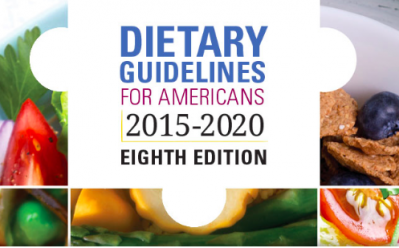2015 Dietary Guidelines: CRN calls for multivitamin/mineral to help redress nutrient shortfalls

During the fourth DGAC meeting, Subcommittee 1 (SC1) repeated that Americans do not meet recommended levels for vitamins A, D, E, C, folate, calcium, magnesium, potassium and fiber, and that many women do not meet recommended intake levels for iron.
“CRN suggests that the 2015 Dietary Guidelines can improve the nutrient adequacy of Americans by including a recommendation that the general population may consider taking multivitamin/mineral when micronutrient intake is not first met through food,” wrote Duffy MacKay, ND, senior VP of Scientific & Regulatory Affairs in a letter dated September 5, 2014
“It is important to underscore that a multivitamin/mineral is not meant as a replacement for a healthy diet, but as a supplement to a healthy diet that can help to achieve adequate nutrient intake. In fact, consumer surveys indicate that most supplement users report their reasons for using supplements are for overall health and to fill nutrient gaps and that supplement use is associated with healthy food choices.”
The letter was addressed to Richard Olson, MD, Prevention Science Lead and Designated Federal Officer for the 2015 DGAC, and Colette Rihane, MS, RD, Director of the Nutrition Guidance and Analysis Division at the USDA’s Center for Nutrition Policy and Promotion.
“The 2015 Dietary Guidelines Advisory Committee has identified nutrient shortfalls for vitamins A, E, C, D, calcium, magnesium, potassium, folate, and fiber. CRN recognizes that changing the dietary habits of Americans to fill documented nutrient gaps is one of the goals of the 2015 Dietary Guidelines. It follows that a prudent policy recommendation would include recommendations for MVMs and other dietary supplements as options to fill nutrient gaps. A simple daily MVM would eliminate public health concerns related to preventable nutrient shortfalls in millions of Americans.”
Safe consumption
Dr MacKay acknowledged that a small percentage of Americans may exceed the Tolerable Upper Intake Level (UL) for folate, calcium, iron, and vitamin D, which may increase the chance of a negative health outcome in some individuals.
“CRN agrees that individuals should be aware of nutrient levels in supplements, consume recommended intake levels, and should not exceed the UL,” he wrote. “However, it is important not to discourage Americans from considering a multivitamin/mineral or other dietary supplement as an option to fill nutrient gaps because a small percentage of Americans exceed the UL for a few nutrients.”
“The Dietary Guidelines Advisory Committee should recommend MVMs and other dietary supplements as a way to provide missing nutrients, when nutrient adequacy is not met through diet alone. The theoretical risk to a small percentage of Americans consuming folate, calcium, iron, and vitamin D at or above the UL should not deter the Dietary Guidelines Advisory Committee from informing Americans that MVMs and other dietary supplements can help ensure nutrient adequacy.”
To read Dr MacKay’s full letter, please click HERE.
Multivitamin popularity
Multivitamins, which have been described as “the cheapest health insurance a person will ever buy”, are the most commonly used dietary supplement, according to survey data.
Results of the 2013 Council for Responsible Nutrition (CRN) Consume Survey on Dietary Supplements showed that 52% of US adults reported to having taken a multivitamin and mineral in the past 12 months, followed by vitamin D (20%), omega-3/fish oil (19%), calcium (18%), and vitamin C (17%).
Overall health and wellness benefits is the most cited reason for taking supplements (selected by 54% of supplement users overall). This was followed by ‘filling gaps in nutrition’ (36%), and heart health (32%).


















